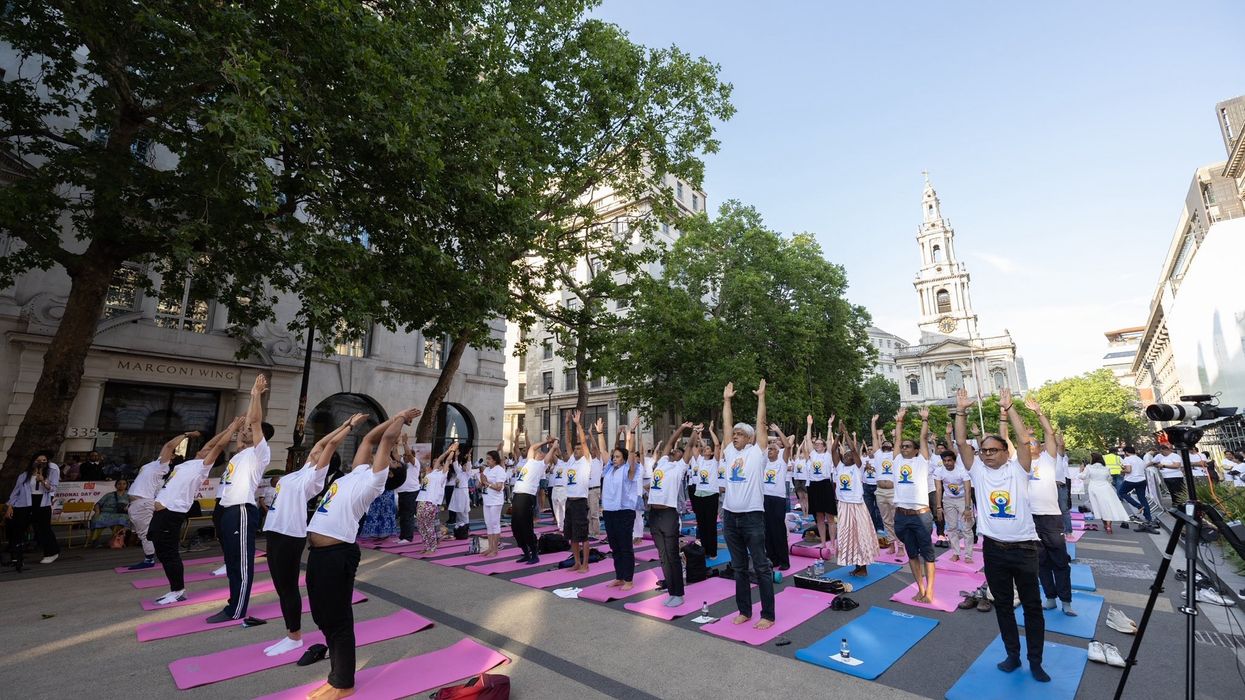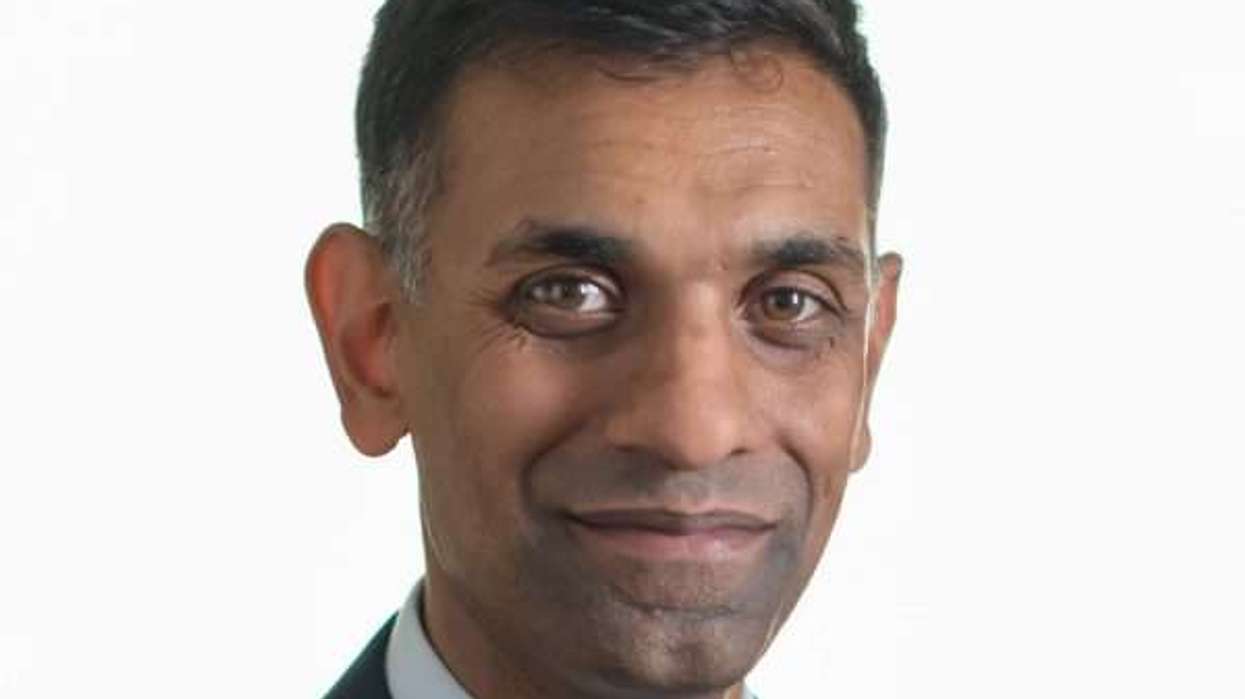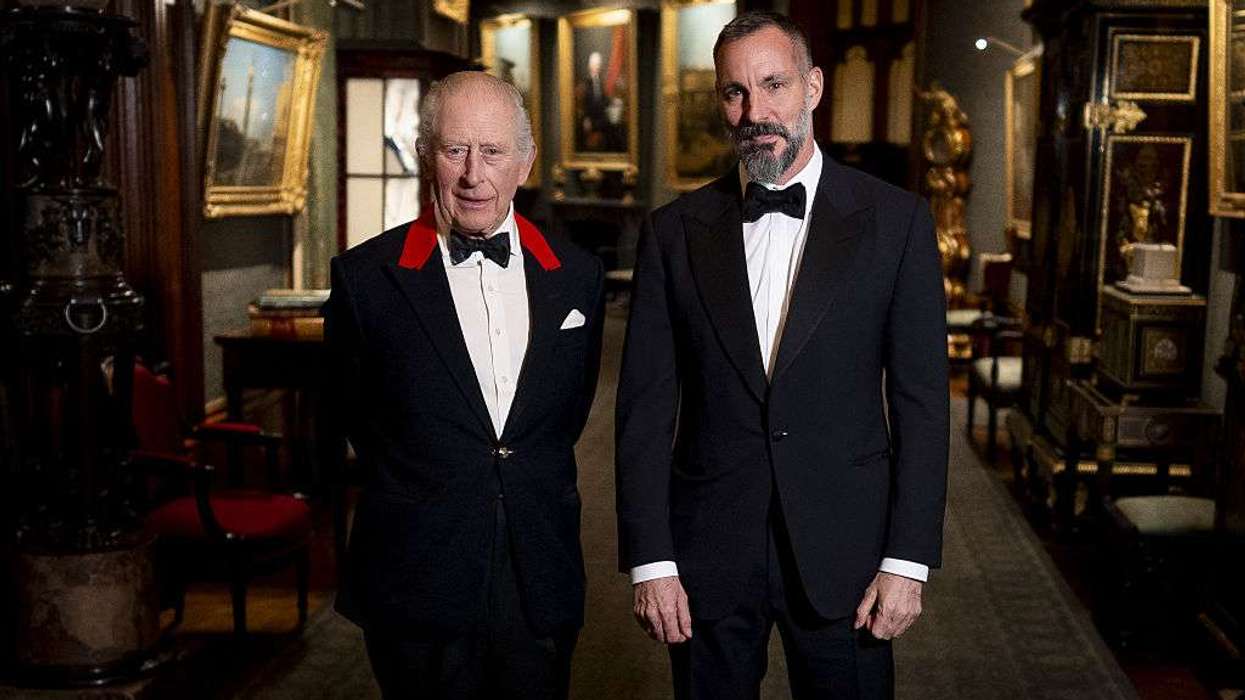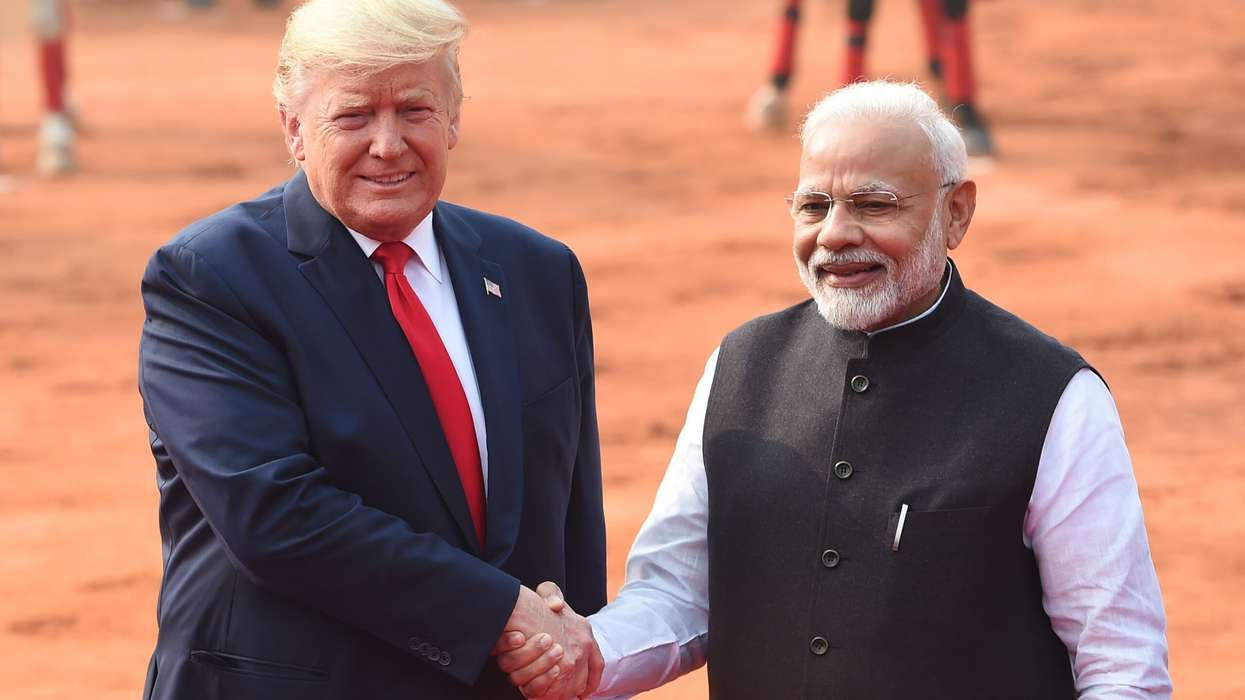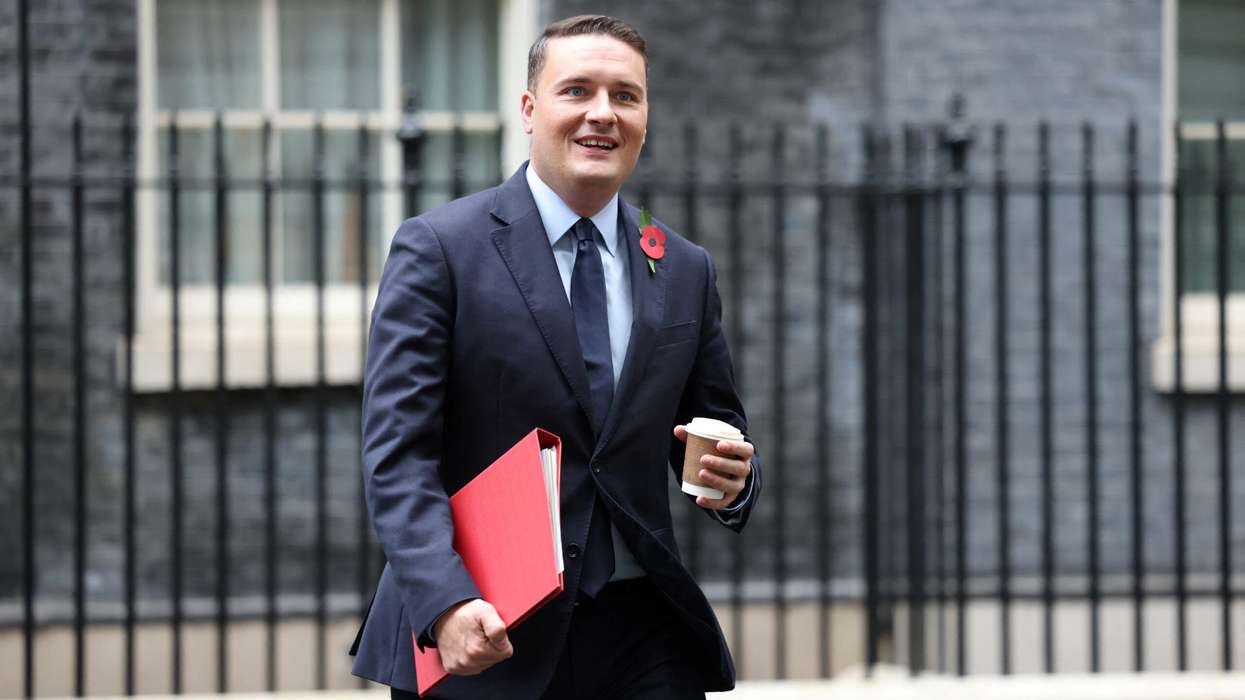HUNDREDS of people gathered in central London on Friday (20) evening to mark the 10th International Day of Yoga, with King Charles III sending a special message of support for the ancient practice that continues to grow in popularity across Britain.
The celebration took place at an iconic square on the Strand, organised by the Indian High Commission in partnership with King's College London. High commissioner Vikram Doraiswami opened the proceedings by reading out the King's personal message from Buckingham Palace.
The 76-year-old monarch, who is known for his interest in yoga, praised the practice for promoting "global principles of unity, compassion and wellbeing".
He highlighted this year's theme, 'Yoga for One Earth, One Health', saying it reminds us "how vitally important it is that the world comes together to secure a happy and healthy future for present and future generations".
"Yoga is increasing in popularity across the UK year on year, with millions of people in our country reaping its benefits," the King's message read. "Yoga is a powerful means of enabling anyone to improve their physical and mental health and fosters a sense of wellbeing and togetherness within communities."
The London event featured expert-led sessions including traditional sun salutations and breathing techniques, with guidance from organisations including Heartfulness UK, Art of Living, and the Isha Foundation. The evening began with a musical performance by Bhavan UK and concluded with 'Samagam', a harmonious blend of yoga and dance.
Doraiswami reflected on the journey since 2014, when prime minister Narendra Modi first proposed the idea to the United Nations.
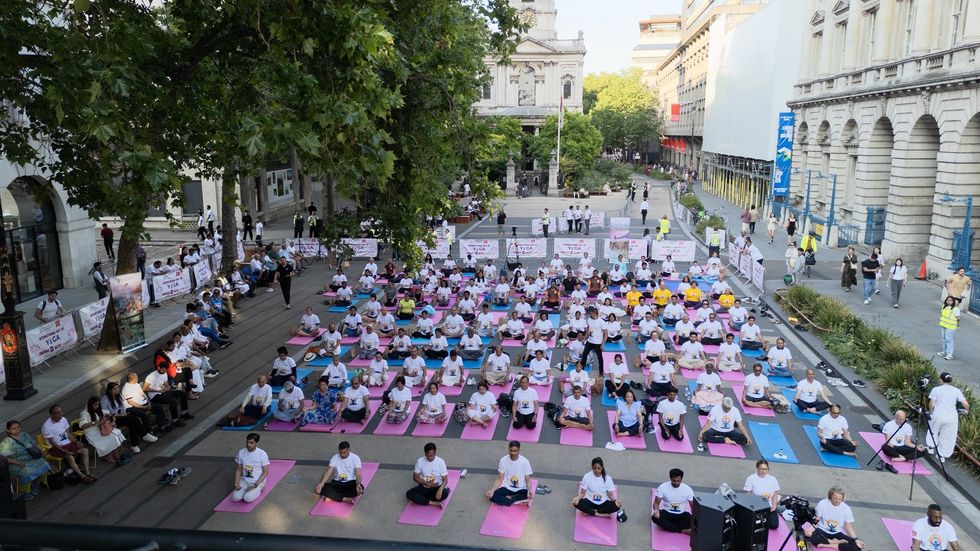
The initiative received support from 175 member states, making June 21 the official International Day of Yoga.
"Yoga speaks to a universal language, the idea of the commonality of the human experience," Doraiswami explained. "We all, no matter where we come from, how we look, how we pray, what we speak, our bodies need the same forms of healing."
Graham Lord, senior vice-president for Health and Life Sciences at King's College London, welcomed the partnership with the high commission.
"King's College London shares the values of community, wellness, inner calm and everything that yoga represents," he said, noting that this collaboration reflects the strengthening relationship between Britain and India.
The London celebration was part of worldwide commemorations that saw thousands of yoga enthusiasts roll out their mats across the globe.
India's prime minister Narendra Modi led the celebrations on Saturday (21) at Visakhapatnam in Andhra Pradesh. The event, which spanned a 26-kilometre stretch from Ramakrishna Beach to Bhogapuram, saw participation from thousands of yoga enthusiasts.
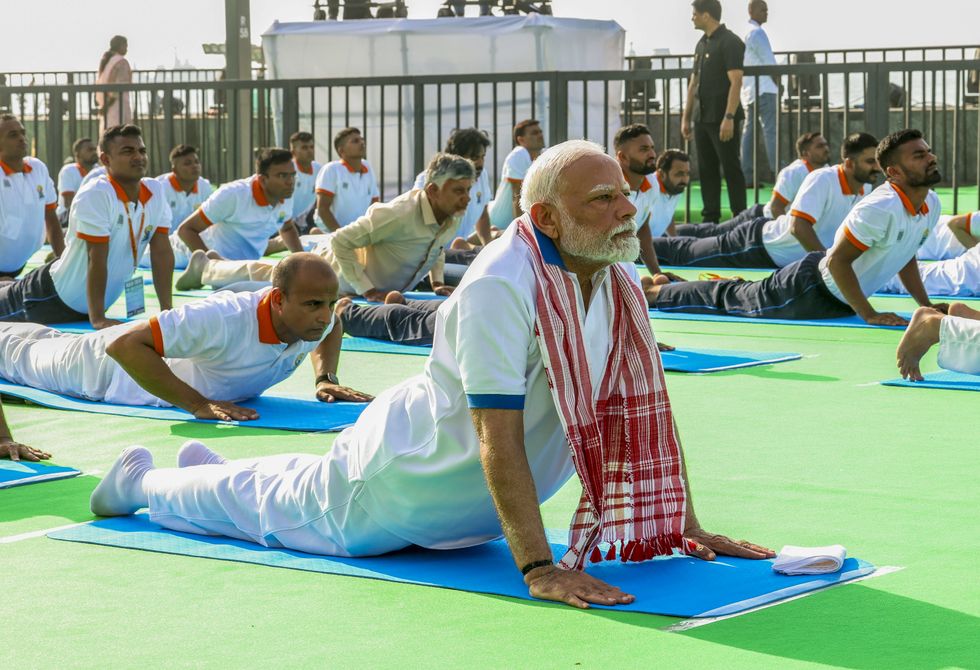
In his address, Modi said that yoga offers a path to peace amid rising global stress, unrest and instability. He urged the world to embrace yoga as a tool to move “from conflict to cooperation” and described it as “the pause button humanity needs — to breathe, to balance, to become whole again.”
This year’s theme, “Yoga for One Earth, One Health”, highlights the link between individual wellbeing and planetary health. Modi said the theme reflects the collective responsibility to ensure a healthy future for present and future generations.
He also noted India’s efforts to promote the science of yoga through modern research, with several leading medical institutions conducting studies on its benefits.
“Yoga is for everyone, beyond boundaries, backgrounds, age or ability,” he said, calling for a new phase of global engagement with yoga: “Yoga for humanity 2.0”. He also urged people to make yoga a part of their daily lives, saying it could be truly transformative.
Sharing photos from the event on social media, Modi wrote, “Yoga unites the world,” and expressed happiness at the widespread enthusiasm for yoga across the globe.
At the United Nations headquarters in New York, wellness guru Deepak Chopra led a special meditation session for over 1,200 participants, including diplomats, UN officials, and members of the diplomatic community.
In Times Square, described as "the crossroads of the world", approximately 10,000 people from various nationalities participated in seven yoga sessions throughout the day. Bollywood actor Anupam Kher attended the iconic New York celebration.
India's Permanent Representative to the UN, Ambassador P Harish, stressed the relevance of this year's theme during challenging times. "At a time when stress, lifestyle diseases and mental health challenges are on the rise, yoga offers a steady, time-tested path that helps one find calm within ourselves," he said.
The Indian Embassy in Beijing having to stop registrations after more than 1,500 people signed up for their event. Thousands participated in multiple yoga sessions across Chinese cities, including Shanghai and Guangzhou, where 300 people gathered on the banks of the Pearl River.
In Singapore, 300 participants celebrated at Supertree Lawn in the central business district. Minister of state Dinesh Vasu Dash told attendees: "In an increasingly divided world, we need more yoga to bring all of us together."
Thailand marked a particularly special milestone, having organised more than 30 yoga events across the country over the past 100 days leading up to the main celebration. Over 4,000 people performed the yoga protocol in unison at Chulalongkorn University in Bangkok.
Other notable celebrations took place in Japan at the historic Tsukiji Hongwanji Temple, attended by the spouses of the prime minister and foreign minister, and at UNESCO World Heritage sites in Nepal, including Lumbini, the birthplace of Buddha.
From the banks of Nepal's scenic Phewa Lake to Australia's old Parliament House in Canberra, millions joined in celebrating yoga's message of physical and mental wellbeing.
(Agencies)
